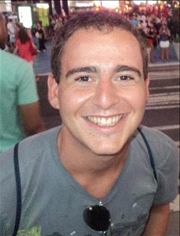Tutor HuntResources Medicine Resources
How Does Educational Theory Influence Clinical Skills Teaching?
Abstract provided. Full text available by email
Date : 11/04/2013
Author Information

Uploaded by : Alex
Uploaded on : 11/04/2013
Subject : Medicine
Methods: Many databases including PubMed, Scopus and Medline proved to be futile for this review as they are predominantly databases for clinical trials and practise, without an emphasis for medical education. With the keywords: ("Educational theory,") AND ("Clinical Skills," OR "Medicine,"); PubMed showed 2 papers which were used for background information on the subject, in addition to referencing other papers which were evaluated with the selection criteria (below) Therefore, a database called ERIC (Educational Resources Information Centre)3 was chosen as the main database because this has a focus for papers about educational practise.
Discussion: The BBL theory may be compared to the control theory as they both require the teacher to ensure the student is comfortable. BBL has a focus on neurophysiology while the control theory is more centred around the external environment. The role of a clinical skills tutor to overcome a student`s educational inhibitions involve ensuring the students are comfortable with both the environment and the level of teaching - both of which apply for both theories. Piaget`s theory is applicable to most educational theories. The descri ption of how a child continuously trials new cognitive structures until one re-establishes equilibrium is very suggestive of negative reinforcement in behaviourism. Therefore it is important to allow the student time to cognitively process these new additions to the brain. Observational learning additionally requires the presence of various other students, but the principle is the same.
Conclusion: When undertaking the role of a teacher, the educational theories are very useful in the prior planning, i.e. curriculum design/lesson plans. However there are so many to consider and it is impossible to apply them all while actively teaching a class. Therefore it is important to follow a lesson plan but adapt it to the personal style of the teacher. It was noticed during the revision session that the best response came from applying the Observational Learning Theory, by telling students various tips which have been accumulated by an additional year`s experience. Even though there is no evidence of the patency of this, it certainly made the students feel more comfortable and relaxed to see alternative methods. Internationally, not just the content but also the practise of medical education has been reconstructed copiously to include different educational theories, catering for changing student requirements. If each of these reconstructs were thought of as "interventions", it would be very interesting to see retrospective studies performed before and after each intervention. This research should analyse students from all universities separately and see which interventions increase performance the most. A study like this should confirm the benefits of using educational theory and aid further enhancement of medical education.
This resource was uploaded by: Alex
